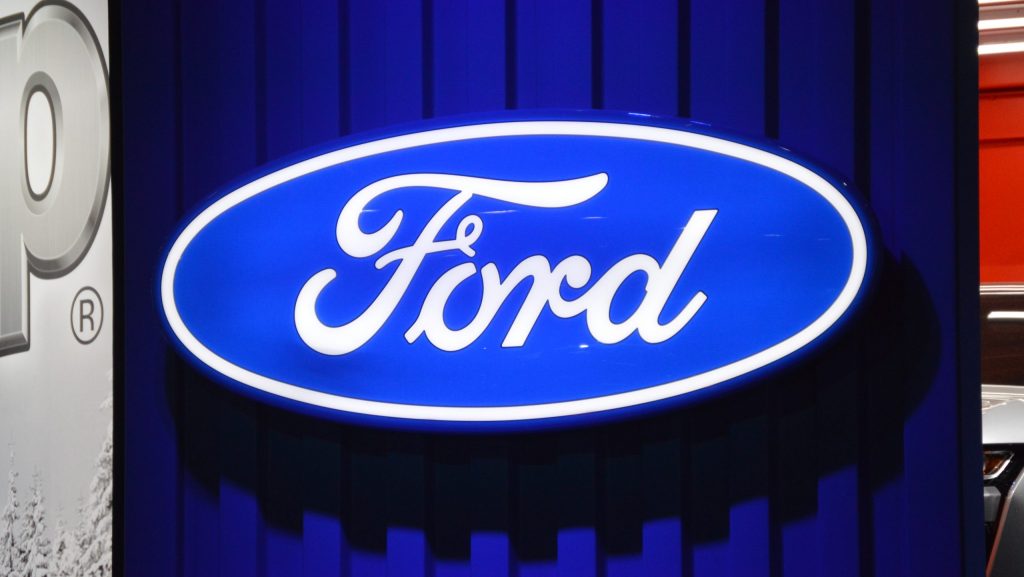Canadian Auto Workers Choose Ford As Bargaining Target
Canadian workers at Ford plants will begin a work stoppage on Sept. 22nd if no agreement is reached.

The union representing Canadian auto workers, Unifor, has selected Ford Motor Co. as its first target for pattern bargaining.
A work stoppage at Canadian Ford plants will begin Sept. 22nd if no agreement is reached.
Unifor president Jerry Dias says he selected the company to go first because it seemed most willing to work with the union on a new contract.
“We’ve had a lot of very constructive conversations with senior Ford management in Dearborn.” — Jerry Dias, Unifor
“Frankly, I selected General Motors four years ago because I thought we were going to have a fight and I thought it was best to just get it over with,” says Dias. “We’ve had a lot of very constructive conversations with senior Ford management in Dearborn.”
Union officials hope to reach a deal that sets an example in securing a future for the country’s auto industry. Dias says all three Detroit manufacturers have plants in need of future product assignments.
“The first thing we need to negotiate,” says Dias, “is find a way to stabilize the Oakville assembly plant. We have no vehicle allocated to the plant beyond the Ford Edge, so that becomes a priority.”
Dias points to electric vehicle technology as one possible way to secure the Oakville plant’s future. He says none of the $300 billion Ford has invested in global electric vehicle production, none has been allocated to Canadian plants.
Michelle Krebs is an automotive analyst for Auto Trader. She spoke with WDET’s Alex McLenon about Unifor’s pattern bargaining and the potential impact of a work stoppage north of the border.
Click on the player above to hear Auto Trader’s Michelle Krebs, and read a transcript, edited for length and clarity, below.
Alex McLenon, 101.9 WDET: Unifor president Jerry Dias says he chose to target Ford first because it seemed like they were the most willing to make a deal. In the past unions have often started with the more difficult target. Why might they be going that route?
Michelle Krebs, Auto Trader: I think they picked Ford because one of the big issues for Canada and Unifor is that they’ve lost a lot of auto companies doing business there and that means they’ve lost good paying jobs. Ford has a plant in Oakville, Ontario. That plant had been making the Ford Flex; Ford discontinued it. It makes the Ford Edge and there’s an analyst out there saying Ford is going to drop the Edge. Ford has not confirmed that.
So the union is nervous that Ford will close that plant and they’ll lose those jobs. The union wants assurance there’ll be some new product going in there. Of course, everyone seems to want electric vehicles in their plants and automakers seem to be moving in an electric vehicle direction so perhaps that’s a possibility.
After Ford, Unifor will move on to General Motors and Fiat Chrysler. When the union announced they were targeting Ford first on their live stream, it seemed like people were surprised they weren’t starting with Fiat Chrysler. Do GM and FCA have the products to put in Canada, like they seem to feel Ford has?
General Motors has less and less in Canada. They are not as huge a player as they use to be. They have closed Ontario plants and they have a different contract that covers one of their other plants there that is not part of this deal.
I think it is a surprise that Fiat-Chrysler wasn’t picked because they have a couple of very important plants here. They have the minivan plant in Windsor and that has lost a shift – so a loss of jobs there. And they have the plants that make the Dodge Charger, Dodge Challenger, and Chrysler 300. Those are aging products and there is some question about their future. Certainly that will be a challenging contract to obtain.
One of the issues dealerships have been facing in the US is a new vehicle shortage. How might a work stoppage in Canada impact that?
If there should be a strike, God forbid, the vehicles that are made in Canada – like the Chrysler Pacifica, Dodge Charger, and Dodge Challenger – there’s plenty of those. The supply isn’t going to evaporate right away; where as some other products are in very short supply. So in terms of inventory they could weather a strike for a short time.
Trusted, accurate, up-to-date
WDET is here to keep you informed on essential information, news and resources related to COVID-19.
This is a stressful, insecure time for many. So it’s more important than ever for you, our listeners and readers, who are able to donate to keep supporting WDET’s mission. Please make a gift today.
